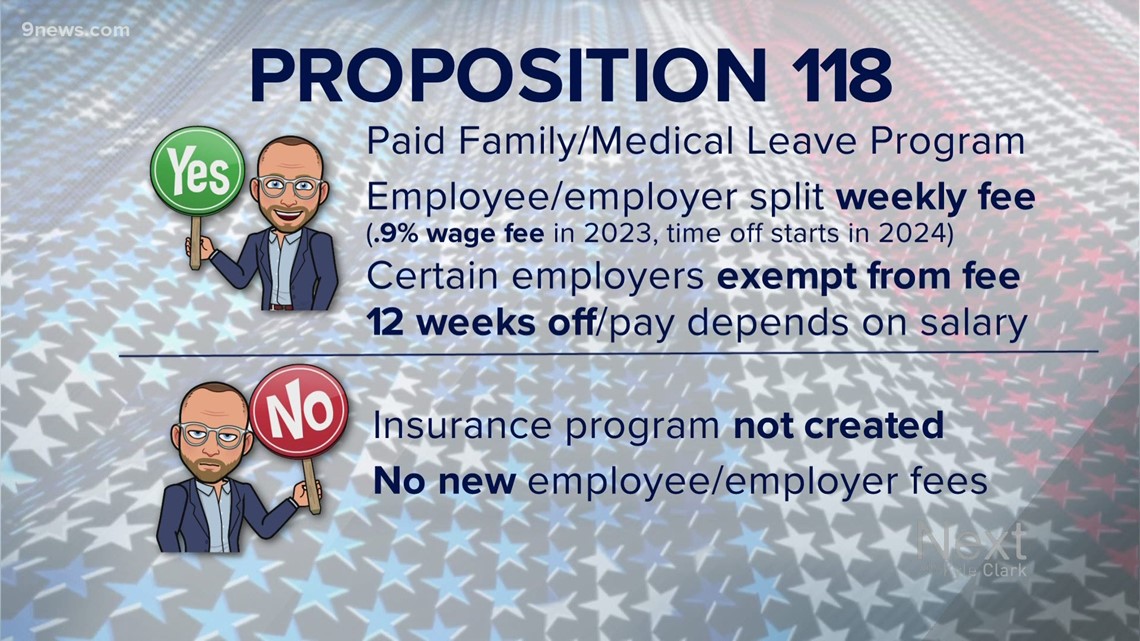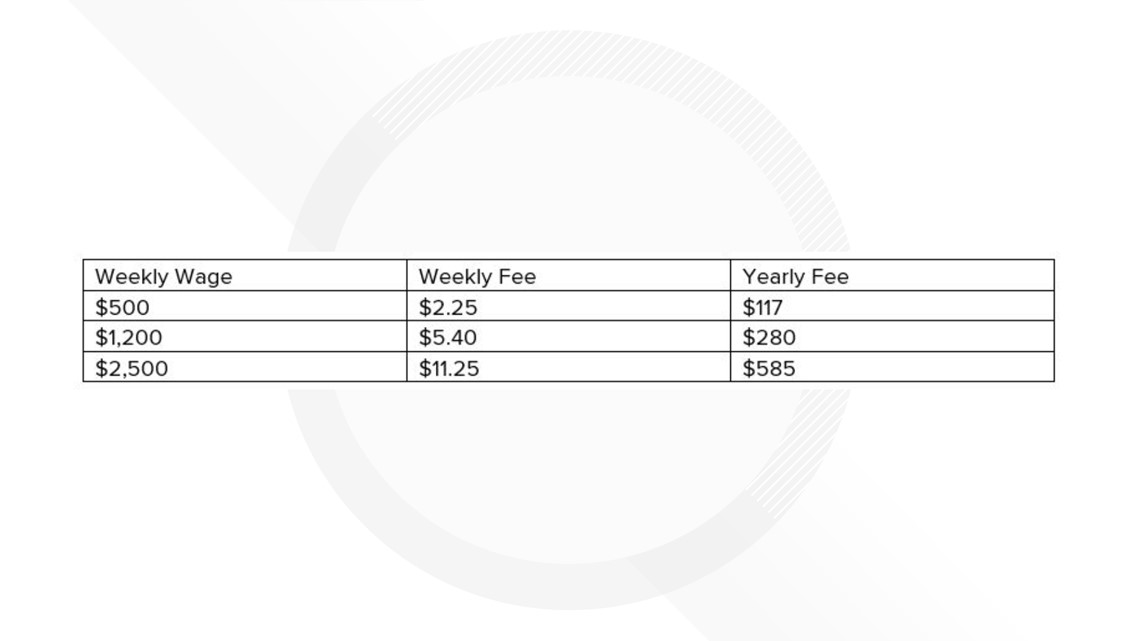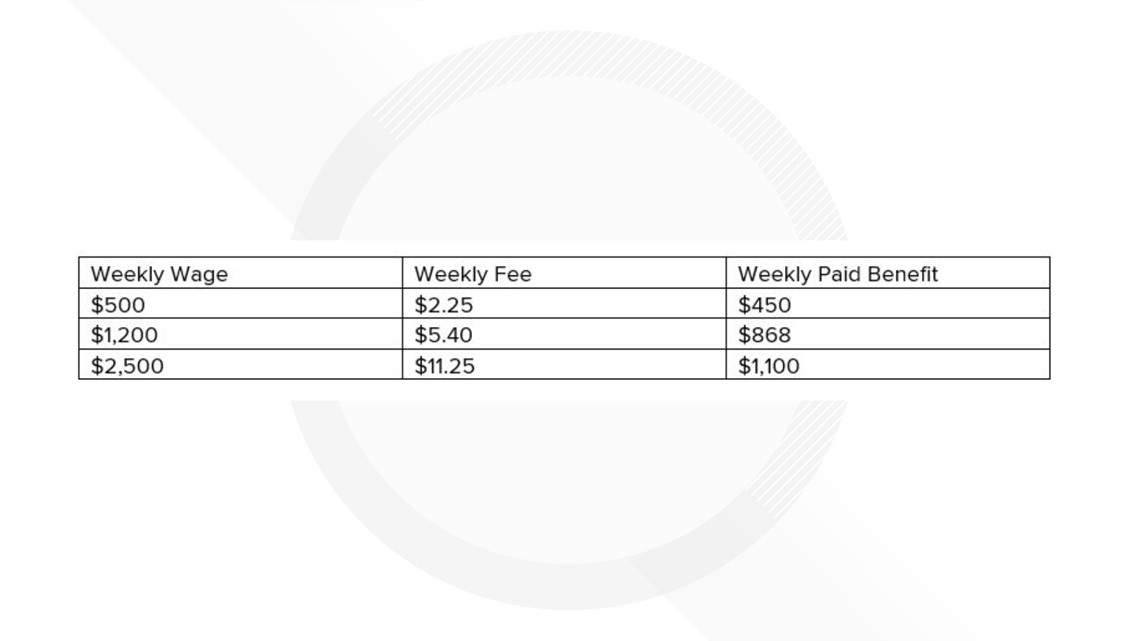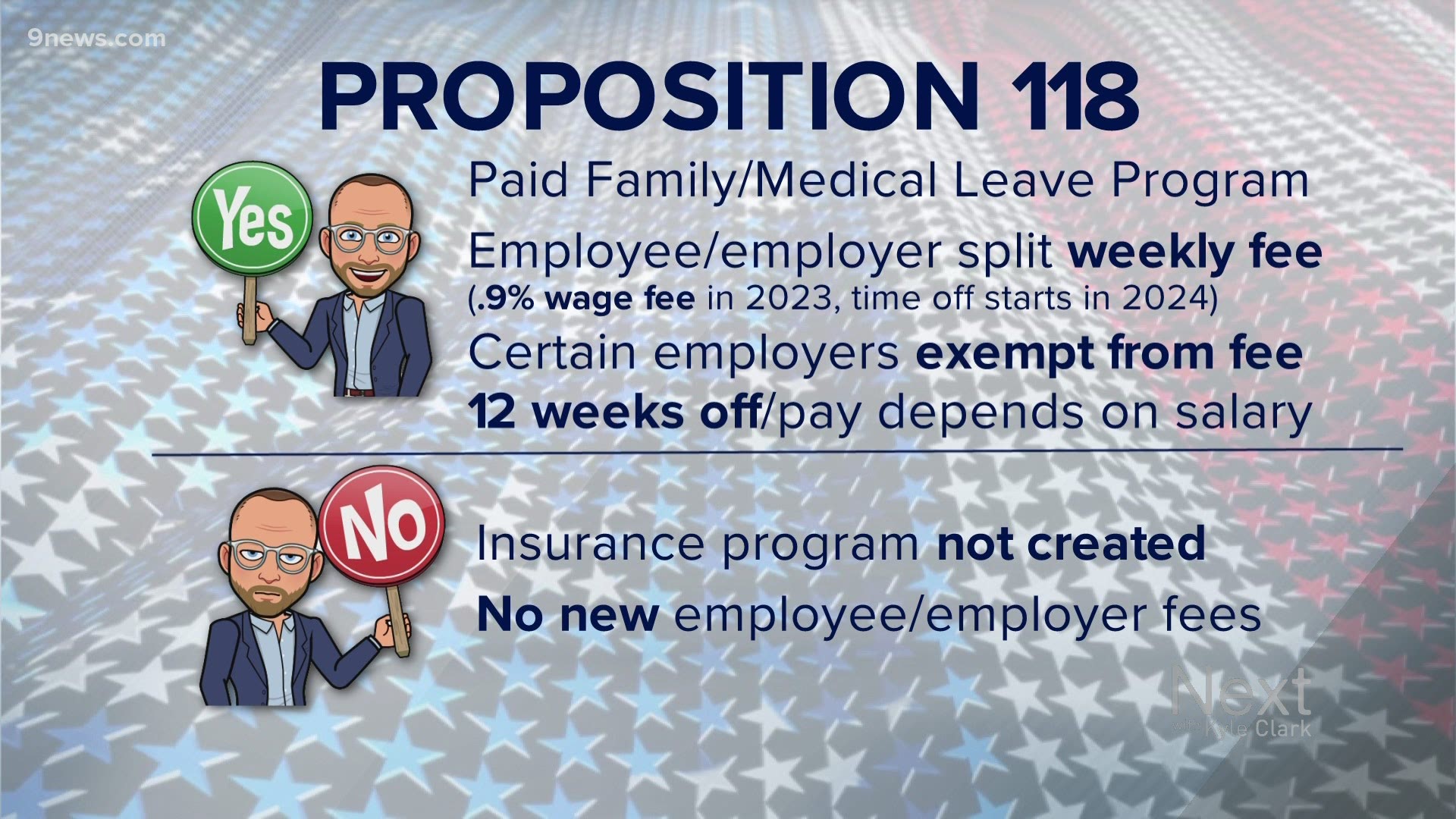DENVER, Colorado — This story is part of a series of statewide ballot issue reviews for Next: We Don't Have To Agree, But Let's Just Vote.
Proposition 118 asks you to approve a new paid family and medical leave insurance program.
If that sounds familiar, it should.
Democratic lawmakers have tried six times to pass some form of paid family and medical leave and have not been able to do so six times, including this past legislative session.
Next with Kyle Clark covered the issue extensively this year:
Colorado Families First is the group that collected the 124,632 valid signatures to qualify a paid family and medical leave issue for the 2020 November ballot.
A YES vote means you want the state to start a paid family and medical leave insurance program.
Employees and employers would split the weekly fee starting in 2023. That fee is 0.9% of the employee's weekly wage. No employee would be eligible for paid time off under this program until 2024, to allow the insurance fund to get enough money.
Employers with nine or fewer employees would be exempt from paying the employer portion of the fee. Employees of those businesses could choose to pay the employee half and receive the benefits.
Local governments could also choose to be exempt.
Employees would be eligible for up to 12 weeks of paid time off. It would be 16 weeks in certain circumstances. We'll explain the reasons allowed for paid family and medical leave later in this article.
How much you'd get paid depends on your weekly salary. There will be examples later in this article, as well.
A NO vote means the state will not start a paid family and medical leave insurance program. Employees and employers would not see a new fee starting in 2023.


Reasons to take paid family and medical leave
- Care for yourself or a family member with a serious health condition.
- Birth, adoption or foster care of a new child during the first year of care
- Family member's military active duty status
- As a result of domestic violence, stalking or sexual assault
The statute that Proposition 118 creates defines a "serious health condition" as "an illness, injury, impairment, pregnancy, recovery from childbirth, or physical or mental condition that involves inpatient care in a hospital, hospice or residential medical care facility, or continuing treatment by a health care provider."
It also defines safe leave for a victim of domestic violence, stalking or sexual assault as using the leave to seek a protection order, obtain medical care or mental health counseling for themselves or their children, to secure their home or seek new housing and to seek legal assistance.
How much would you pay?
To start the program in 2023, the fee would be 0.9% of an employee's wage.
Employers would pay at least half. Employees would pay up to half.
Assuming it's a split 50-50 arrangement, here are some examples of what an employee would pay with a 0.45% fee.


There is a maximum of no more than $727.50 per year. So, anyone making more than $3,109 a week ($161,700/year) would pay the same fee.
Starting in 2025, the director of the program would be able to raise the fee up to 1.2%, depending on the amount needed in the fund to cover claims and administer the program.
How much would you get?
It's based on an odd equation.
The calculation is 90 percent of the employee's salary that is less than or equal to half of the state's average weekly salary. First, you need to know the state's average weekly salary. The estimate for 2014, when leave can begin, is $1,340. Half of that is $670. So, 90 percent of half of the state's average weekly salary is $603. If you make less than that, you would get 90 percent of what you're used to getting. If you make more than that, you would get 90 percent of the first $670 ($603) and then 50 percent of the difference between $670 and what you actually make in a week, with a cap at $1,100.


The maximum benefit an employee would be able to receive is $1,100.
The state's average weekly salary and the maximum benefit would increase in 2025.
Colorado Families First has received more than $7 million from two Washington, D.C. groups that don't have to disclose their donors. One is called North Fund, the other is called Sixteen Thirty Fund.
Unions have also contributed money, including $100,000 from the United Food and Commercial Workers union which represents grocery store employees and JBS workers in Greeley.
Service Employees International Union (SEIU) in Washington, D.C. has also contributed nearly $94,000.
The group that wants you to vote no includes support from businesses, Chambers of Commerce and home builders.
Arguments for voting yes: people need paid time off for family and medical reasons.
Arguments for voting no: businesses are already struggling with COVID-19 restrictions and minimum wage requirements, and this would add a new cost.
Editor's note: The maximum yearly fee has been corrected in the copy of this web story. The video still contains a number error. The correct maximum yearly fee is $727.50.
SUGGESTED VIDEOS: Breaking down Colorado's 2020 ballot

